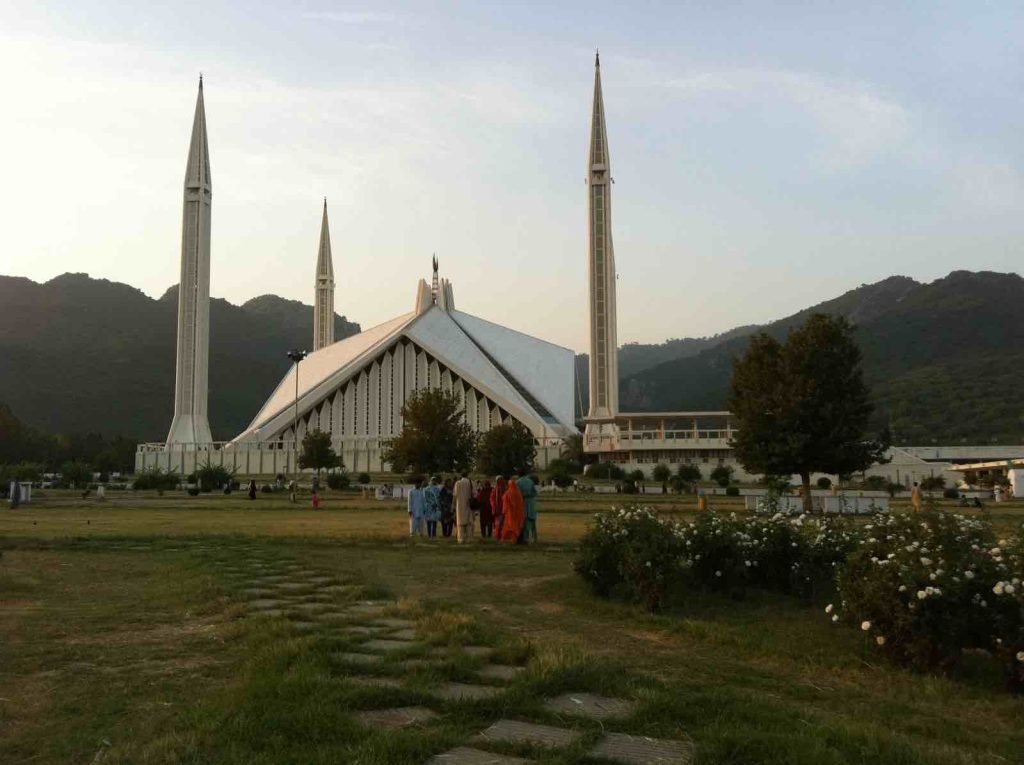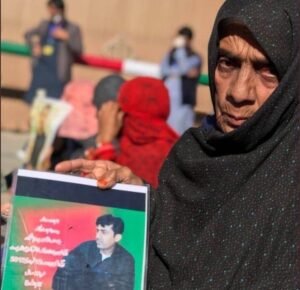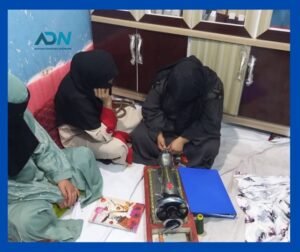Alarming Gender-Based Violence Statistics in Pakistan Revealed Amidst Alleged Police Crackdown on Aurat March

Islamabad's Faisal Masjid Photo: @Ali Ahmad
By Shinwari
An alleged police lathi-charge on participants of the Aurat (Women’s) march in Islamabad (8 March 2023) provides the context for a perusal of plight of women in Pakistan as information released in a new report of the National Commission of Human Rights (NHCR) shows that around 63,000 cases of gender-based violence were reported over the past three years. Some 4,000 of these incidents were reported in the first half of 2020, when lockdowns were imposed to curb the spread of coronavirus.
The NCHR’s report termed “key contribution in leading the discourse” regarding intimate partner violence was shared with participants in a gathering at a hotel. The report notes that while the data was based on reported cases, the actual number could be much higher.
The Commission quotes figures from the Human Rights Ministry which said 80 percent of these cases were related to domestic violence, while some 47 percent of domestic rape where married women experienced sexual abuse. Senator Sherry Rehman and MNA Shazia Marri termed these cases the tip of the iceberg. Senator Rehman, who is also the Minister for Climate Change, said violence against women was a display of “power” and called such cases a “hidden pandemic” and “statistics of shame”.
The statistics are staggering, 90 percent of women face some form of domestic violence in their lifetime, yet 50 percent do not report it, and only 0.4 percent of them go to courts,” she said. She said that in addition to legislation, the implementation of laws and changes at the societal level are equally important to address the root causes of domestic violence.
Just how precarious the situation in Pakistan with regard to women was recently witnessed when the Aurat March, annually celebrated to coincide with International Women’s Day, was lathi-charged by the police in a bid to prevent them from reaching D-Chowk. The march was supposed to start at the National Press Club (NPC) and end at D-Chowk in Islamabad. The incident sparked anger among politicians and activists, as well as a large number of people on mainstream media and social media.
Rights activist Farzana Bari said that there were some “planted people in police and media persons” who deliberately tried to create disturbance and unrest among the marchers so that the peaceful march would fail to achieve its targets.
Participants of the march arrived at the Press Club in Islamabad at 2 pm (8 March) but were shocked to see barbed wires placed around the venue which made it difficult for them to reach their destination. However, with some difficulty, they managed to reach the NPC. For the next three hours, they could not start their march as containers had been placed along the route, besides a large number of law enforcement officials, who were there to stop the protest. When the marcher began their protest, on-duty police officials tried to stop them. Suddenly, the police unleashed a baton charge on the protesters. The reason for this ostensibly was that one of the marchers had allegedly slapped a police officer after an exchange of heated words.
Subsequently, the police removed one of the containers and marchers managed to reach the D-Chowk to protest patriarchal violence. A play was also organized highlighting the plight of women. Participants were carrying banners and placards on which slogans were written in favor of women and transgender people.
Senator Sherry Rehman, who later visited the site, condemned the Islamabad Police for using violence against the Aurat March and sought a thorough investigation. She said it was a shame that such things were happening on International Women’s Day. The Minister, in a statement, claimed that she had informed the Interior Minister about the situation and could not tolerate such behavior in the future. She noted that a bill to end domestic violence had first been introduced in 2004 but the legislation still had to see the light of day.
After the outcry over police actions, the Islamabad Police chief said there was a need to enhance the capacity of police to deal with cases of gender-based violence. The Dawn reports that there was a need to hire and recruit able prosecutors as well as judges who are sensitised to this issue. In addition, there was a need to establish a special investigation unit to probe offences against women and children.
Referring to Chapter 58 of the Holy Quran, the Federal Sharia Court Chief Justice Muhammad Anwar said Islam abhors violence against women. “Domestic violence has nothing to do with Islam,” he reiterated. NCHR Chairperson Rabiya Javeri Agha said, releasing the NCHR’s latest report, saying that through this they aimed to lay the groundwork for an inclusive society, where all women are equally empowered. The report said domestic violence is grounded in multiple social, cultural and religious factors, such as patriarchy, gender inequality, lack of awareness, economic dependence, religious beliefs, and social stigma. These factors are compounded by institutional hurdles that “women face in accessing justice and redress.”
The NCHR report claimed that cases of domestic violence were dismissed by the Police as a ‘private’ matter, despite abuse and relevant legislation. Unlike other provinces, domestic violence is not criminalised in Pakistan’s Punjab. The report also addresses the use of religion to oppose laws pertaining to such violence. It quoted a Federal Sharia Court judgement wherein the court had said the “domestic violence legislation of Punjab is in line with Islamic injunctions and constitutional fundamental rights”.
The NCHR policy document calls for advocated training for law enforcers and health professionals, the inclusion of male allies in campaigns against domestic violence, and legal aid systems available to women at all levels. At the end of the day, Pakistan faces a severe societal challenge due to gender-based violence. The latest NCHR Report is testimony to this reality and could be the basis for reform in Pakistani society. The lathi-charge on the Aurat march reflects the prevailing attitude towards gender in Pakistan and demonstrates that change will be slow in coming to Pakistani women!
* Author chooses a single pseudonym. Shinwari is a freelance journalist based in Peshawar, Pakistan.
Note: The contents of the article are of sole responsibility of the author. Afghan Diaspora Network will not be responsible for any inaccurate or incorrect statement in the articles.










